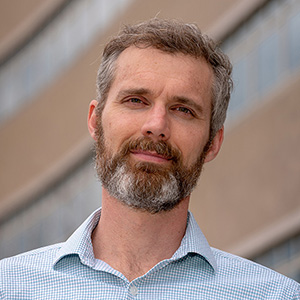Published: July 10, 2020

The onset of the COVID-19 pandemic this past spring saw universities across the country close their campuses and teachers rapidly transition their curriculums to a virtual classroom setting. Now, after months of social distancing and online learning, these same institutions are looking ahead to the fall semester. Simultaneously however, as states are beginning the process of reopening, many at different rates, we are also seeing a spike in infection rates. So in the face of this, can universities safely reopen their campuses? The answer may truly surprise you.
Joining me to discuss how his university is approaching the upcoming fall semester is Peter Frazier, professor at Cornell University in Ithaca, NY.
There were a couple of key insights. The main one that the administration and the faculty and the broader community, the students and staff, found to be surprising and also that informed the decision here at Cornell, was the discovery that if you don’t open the campus, so if you don’t offer residential fall instruction, it turns out to actually be less safe than offering instruction under a wide variety of parameter choices.
Interviewed this episode:

Peter Frazier
Cornell University
Peter Frazier received a B.S. in Physics and Engineering/Applied Science from the California Institute of Technology in 2000, after which he spent several years in industry as a software engineer, working for two different start-up companies and for the Teradata division of NCR. In 2005, he entered graduate school in the Department of Operations Research & Financial Engineering at Princeton University, and received an M.A. in 2007 and a Ph.D. in 2009. He joined the faculty at Cornell in 2009 as an Assistant Professor in the School of Operations Research & Information Engineering, where he is now an Associate Professor. His research is in sequential decision-making under uncertainty, optimal methods for collecting information, and machine learning, focusing on applications in simulation, e-commerce, medicine and biology. He is the recipient of a CAREER Award from the National Science Foundation and a Young Investigator Award from the Air Force Office of Scientific Research. He is currently on leave at Uber, where he is a Staff Data Scientist and Data Science Manager. At Uber, he worked on UberPOOL from 2015-17, and on broader pricing efforts from 2016-17. He now leads a data science team focused on pricing.
Episode Transcript
Contact us to request transcript.
Want to learn more? Check out the additional resources and links listed below for more information about what was discussed in the episode.
COVID-19 Mathematical Modeling for Cornell’s Fall Semester
Why Cornell Will Reopen in the Fall, Wall Street Journal
